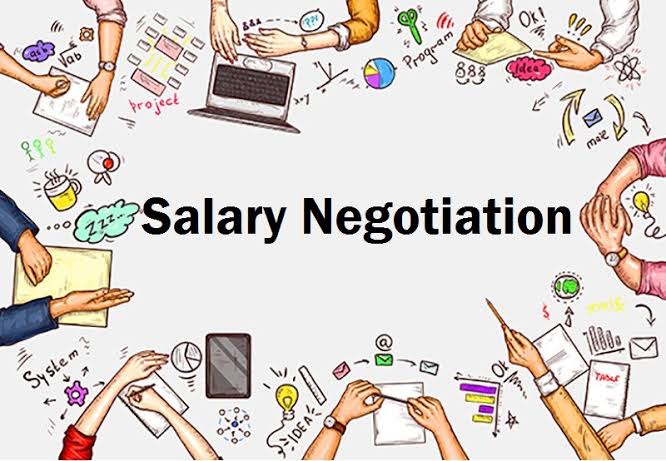In 2025, salary negotiation is no longer a skill reserved for executives—it is an essential competency for professionals at every stage of their careers.
Salary negotiation has become one of the most vital professional skills in today's competitive job market. As of June 2025, more professionals are realizing that negotiating compensation is not just about asking for more money—it is about understanding one’s value, mastering communication, and building long-term career success. Whether you're switching jobs, aiming for a raise, or discussing performance-based incentives, negotiation is a critical part of career development. Below are the top ten salary negotiation skills that can enhance your ability to secure better compensation and career growth.
10. Research And Market Awareness
Understanding the going rate for your position, experience level, and location is the foundation of any successful salary negotiation. Candidates who come prepared with data from salary websites, industry surveys, and job boards are more likely to make informed requests. Research also helps avoid underpricing yourself or asking for an unrealistic figure. In 2025, tools like AI-powered salary calculators and real-time benchmarking platforms provide up-to-date insights across regions and job sectors, making research easier and more precise than ever before.
9. Confidence Without Arrogance
Confidence is essential when negotiating pay, but overconfidence or arrogance can be detrimental. The key lies in articulating your value and accomplishments clearly, without making it sound like an ultimatum. Employers respect candidates who know their worth and can speak about their skills and contributions with clarity. Practice helps, and many professionals now rehearse negotiations with mentors or coaches before walking into the real conversation. Confidence also means being comfortable with silence, pauses, and moments of pushback during the discussion.
8. Timing And Situational Awareness
Knowing when to initiate the conversation can impact the outcome significantly. The best time to negotiate is after receiving a job offer but before signing the contract. For existing employees, ideal moments include performance reviews, after achieving a major milestone, or when taking on new responsibilities. Being attuned to company performance, industry conditions, or internal restructuring also helps gauge whether it's the right time to ask. In 2025, virtual communication has blurred traditional boundaries, so understanding how and when to approach the subject in digital settings is equally important.
7. Understanding The Full Compensation Package
Salary is just one part of the total compensation. Benefits such as health insurance, remote work flexibility, stock options, retirement plans, wellness programs, training budgets, and performance bonuses often carry significant financial value. Effective negotiators consider and discuss the entire package rather than focusing solely on the base pay. In today’s workplace, where flexible arrangements and personal development are valued, being open to non-monetary components can lead to a more satisfying and tailored agreement.
6. Effective Communication And Active Listening
Clear, professional communication builds trust during negotiation. Expressing your expectations in a calm, respectful manner is key, but so is listening. Active listening allows you to understand the employer’s constraints and priorities. Sometimes, managers may have limited flexibility on salary but more freedom with bonuses or benefits. Good negotiators pay attention to tone, body language (even over video calls), and cues that indicate willingness to negotiate. In 2025’s hybrid work culture, mastering both verbal and digital forms of communication is more important than ever.
5. Framing Value With Evidence
Instead of simply stating what you want, effective salary negotiation relies on demonstrating why you deserve it. Presenting specific accomplishments—such as boosting revenue, improving efficiency, or leading a successful project—strengthens your case. Tailor your examples to what the employer values, aligning your contributions with business goals. Including performance metrics, industry certifications, or client testimonials can further bolster your position. With access to digital portfolios and LinkedIn endorsements, professionals now have more tools than ever to substantiate their value during negotiation.
4. Emotional Intelligence And Empathy
Salary negotiations are not only transactional—they are deeply interpersonal. High emotional intelligence allows you to navigate complex feelings, both yours and the employer’s. Empathy helps you understand the employer’s perspective and adjust your approach accordingly. A manager may want to give you more but be limited by budget caps. Recognizing their constraints while still asserting your needs builds rapport and makes the negotiation more collaborative than confrontational. Emotional intelligence also helps in responding to rejections gracefully and exploring alternatives.
3. Knowing Your Bottom Line
Before starting any negotiation, it is crucial to define your minimum acceptable offer—your walk-away point. Knowing this helps you stay grounded and make decisions that align with your financial needs and career goals. It also prevents emotional decisions in the heat of the moment. Professionals who understand their value and limits can negotiate from a position of strength rather than desperation. In 2025, many professionals use personal finance apps to estimate their cost of living, debt obligations, and long-term savings goals before setting their bottom line.
2. Flexibility And Creative Problem-solving
Not every negotiation leads to a higher base salary. Sometimes, flexibility and creative thinking can lead to alternative wins—like negotiating a signing bonus, more paid time off, flexible hours, or accelerated performance reviews. Being open to different forms of compensation shows maturity and adaptability. In 2025, remote work stipends, professional development budgets, and wellness incentives are commonly requested by professionals who understand how to creatively structure a rewarding package.
1. Preparation And Practice
Topping the list is the skill of preparation and deliberate practice. Successful negotiation doesn’t happen by chance—it results from thoughtful preparation. This includes researching, scripting your key points, anticipating counterarguments, and rehearsing responses. Role-playing with a mentor or using digital negotiation simulators can sharpen your delivery. By practicing your tone, body language, and phrasing, you’ll feel more in control during the actual conversation. In today’s competitive and tech-savvy job market, candidates who practice their negotiation techniques are more likely to secure favorable outcomes.
